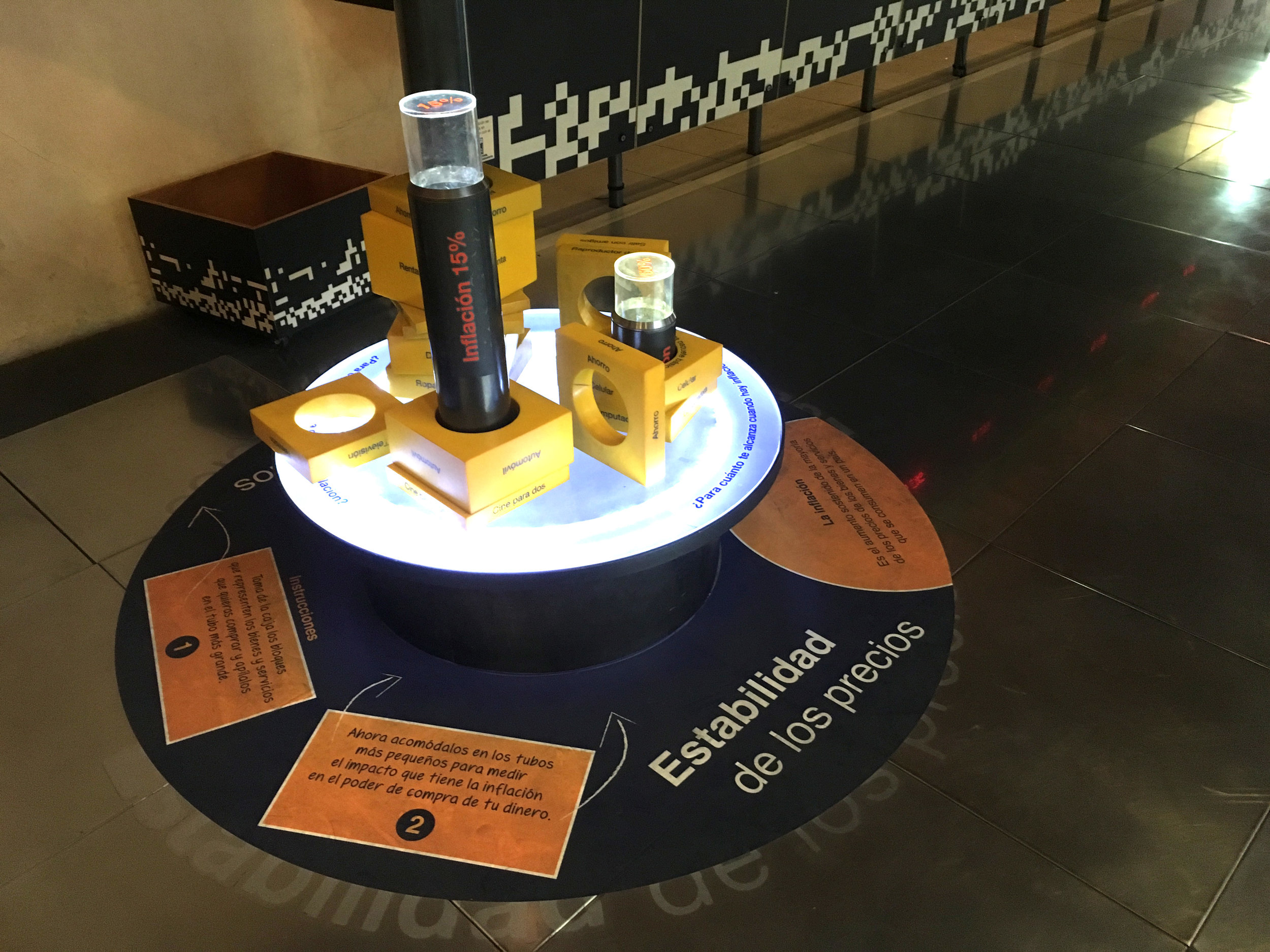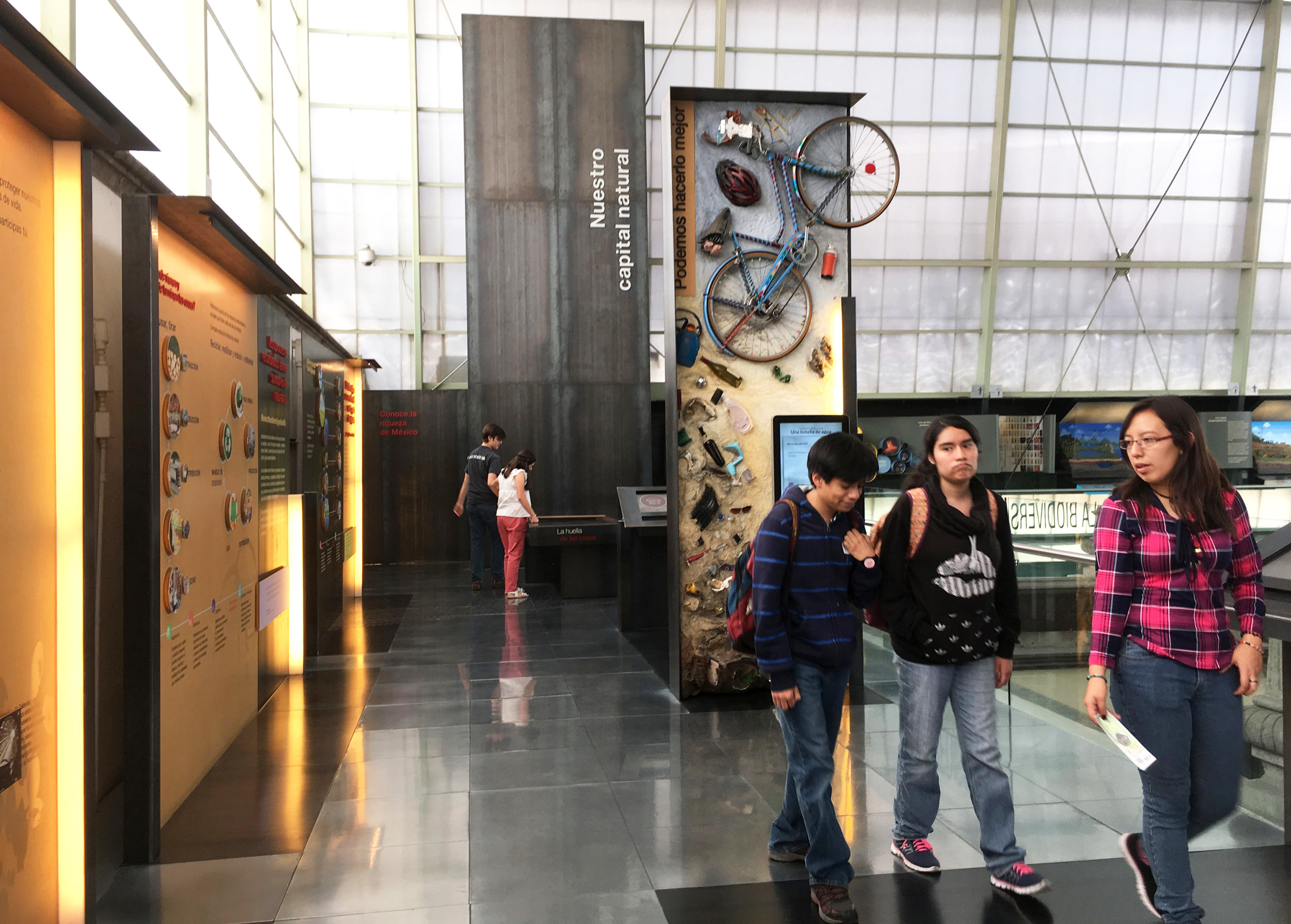Interactive Economics (CDMX)
Mexico City. MIDE is an interactive science museum about economics. Although it was founded by the Banco de Mexico, MIDE prides itself on objectivity, valuing “relevance, inclusion, teamwork, information based on evidence and innovation.”
I heard about MIDE because May is Museum month.
Convent buildings (like this Convent of the Betlemites) make beautiful museums. Courtyard architecture enhances any building.
Such a beautiful space to gather in. Simply honoring the original architecture without dressing it up. Tasteful seating is all you need.
MIDE’s mission is to “encourage critical and creative thinking and the ability to learn to improve the well-being of all.” True to interactive science museums, their vision is to use economics, finance and sustainability “as a lens through which people can discover how the world works.” The entry message is that we’re all part of the economy. The museum’s target audience is 15-25 year olds.
My insufficient Spanish was problematic, but I managed to glean that there were various opportunities to customize your visit, your ticket with a photo, even design your own credit card. They are also focusing on future forms of payment, to enhance their history of money section.
There’s something awkward and redundant about ticket takers at a turnstile. They are like greeters but there’s no time to have a real conversation with them.
The donation box, and the store seems less self conscious in the context of an economics museum.
The first floor focuses on welfare, or well being, based on whether we are healthy, have a good diet, a roof, clothing and education. Peter Menzel’s photo series of families with their food is powerful here, introducing both culture and the aspect of choice, early on in the museum.
The second floor is about finances in society; all the activities that people, companies and governments perform to obtain, manage and save money in order to satisfy wants and need. Exhibits are in Spanish only.
I’m chronically uncomfortable with the bright, noisy aesthetic of many interactive exhibits. I’m rarely convinced that it’s neccessary to “force” the excitement on visitors as if they couldn’t find it for themselves. It reinforces an expectation that things that don’t look childish can’t be understandable.
The “Market Simulator” room was empty when I passed by but usually it accommodates a group of 30 or so for a half hour buying/selling experience, using cel phones.
Here the products circulate around the room on a conveyer belt.
The third floor is about how economists study human behavior. People, families and society in general must decide how to use resources to meet our needs and desires. I liked the way each person in this story grid turns to face the one speaking.
They remain animated and seem to be actually engaged with the one speaking (center)
The fourth floor is about sustainable development, seeking a balance between economic decisions, welfare of society and care of the planet. All our activities have their beginning and end in nature.
An architectural mistake, a squeezable opportunity that visitors can’t resist.
It was harder to find truly interactive exhibits on this floor. But I found some bilingual elements, like this garbage podium that explains “The Story of Stuff” in English.
One example is the tire.
A very successful interactive was this table top adaptation of the “tragedy of the commons” concept using fishing. These three played (and discussed) for about 15 minutes!






























